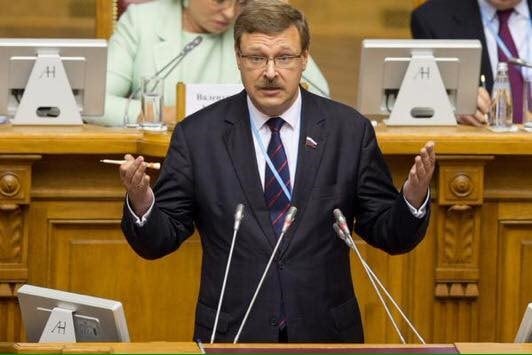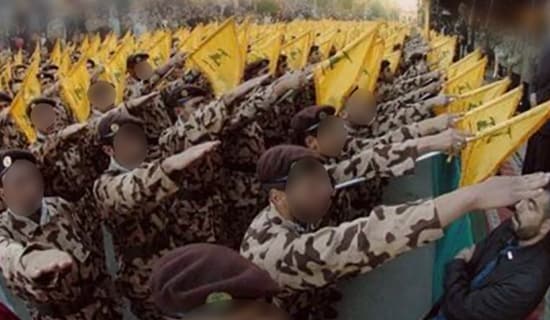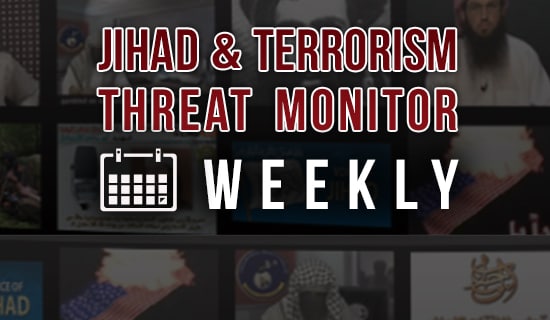Federal elections were held in Germany on September 24. German chancellor Angela Merkel won a fourth term, with her party the CDU receiving 33 percent of the vote, its smallest share since the 1940s. The Social Democrats (SPD) led by Martin Schulz received a mere 20.5 percent, and announced that such a result leaves them no choice but opposition. The real surprise was the 12.6 percent of the vote garnered by the far-right. anti-immigration and Eurosceptic party Alternative for Germany (AfD). It went from zero representation in the Bundestag to the third largest political force in Germany. Under these daunting conditions, Merkel will have to form a coalition.
The Kremlin refrained from comment on the success scored by the AfD, whose leaders oppose sanctions on Russia. Alexander Gauland, an AfD deputy leader, also advocates recognizing Crimea as part of Russia.[1] Kremlin Spokesman Dmitry Peskov said: "This is undoubtedly Germany’s internal affair. Our president has repeatedly stressed that Moscow always respects the choice of voters in any country and finds it inappropriate to comment in any way on the results of (the voters expressing their) free will."[2]
The following are reactions to the outcome of the German elections:

(Sputniknews.com, September 25, 2917)

Results of the German elections. CDU 33%, SPD 20.5%, AfD 12.6%, FDP 10.7%, Die Linke 9.2%, the Green party 8.9%.
(Source: Ria.ru)
Kosachev: The Accusations Of Russian Interference Arise Only When The 'System' Fails

Kostantin Kosachev (Source: Kosachev's Facebook page)
In a post on Facebook, Russian Senator Kostantin Kosachev criticizes the West for accusing Russia of meddling in elections, whenever the "system" is disappointed with the outcome of the vote. In the case of the German elections, Kosachev stressed that now that Angela Merkel got a new term, the entire thesis of Russian interference suddenly disappeared. Kosachev wrote:
"I'm asking myself why a thesis regarding an 'inevitable Russian meddling' into German elections, which was actively promoted during the first phase of the campaign by Berlin and other Western capitals, has disappeared from the TV for the last couple of months?
"The response of Russo-paranoids – 'no evidence was found this time' – is untenable. The simple reason is that in other cases as well there was no evidence [to be found].
"My answer is that the result of the elections (the result desired by the system) became clear in advance.'The Russians are coming' [call of alarm] arises in two cases: Either [the system] completely failed or when it is unclear what will happen and then [the system] needs to scare the naïve public even further.
"When in France [Emanuel] Macron's prospects were less obvious, the 'Russian theory' was kept afloat until the very end. When Hillary was lagging and then lost – [it's because] the Russians had hacked the e-mails.
"'Wikileaks' is not under [their] control – it's clear, the Russians hold Snowden. Failure in Afghanistan? It's because the Russians are flirting with the Taliban. The attempt to topple Assad failed? It's because the Russians help him. The North Korean leader has lost his senses – it's because China and Russia help him. They are not pleased with the Iranian deal? It's Moscow's cooperation which prevents them from putting Iran in the same category as other renegades.
"And this is everywhere a trouble-free technique. I think that had it been invented at the time of the Monica Lewinski scandal, Bill Clinton would have found a way to say hello to us [i.e. he would have linked the scandal to Russia]. But back then, people had to account for their deeds and sins.
"Currently, they think that 'Russiansdidit' [a popular hash-tag on Twitter] solves all the problems, that this is an easier and simpler way. It does not solve anything – in many cases it makes things only worse. But they propose having someone else pay for the fatal mistakes (be it in the elections or at war).
"It does not make things simpler or easier for anyone except the perpetrators. The Russophobic part of the West continues to look more cynical and primitive - disgusting."
(Facebook.com/profile.php?id=100002123135703, September 25, 2017)
Russian Political Experts: Nothing Will Change For Russia
Russian political expert, Pavel Kanevsky, assistant professor at the faculty of political sciences and sociology of political processes, Moscow State University:
"I would say that we should not expect any major changes, since the ruling CDU\CSU coalition has won the elections. It might be that Merkel will be more careful in choosing the general foreign policy course."
(Ria.ru, September 25, 2017)
Aleksandr Brod, co-chairman of the Russian Association for the Protection of Electoral Rights "Civic Control":
"The new configuration of the Bundestag won't significantly change the relations with Russia. The situation will depend on the moods of common Germans –the extent to which they will actively push forward their claims against sanctions, anti-Russian policies. Currently, only a small part of [Germans] is prepared to assert this partnership relations approach with Russia. "
(Ria.ru, September 24, 2017)
RISS Political Expert: AfD's Seats In The Parliament Are In Russia's Interests
Ludmila Vorob'eva, expert of Russian Institute for Strategic Studies (RISS), a think tank established by the President of the Russian Federation, said:
"AFD and the leftists are pro-Russian parties. That's why their progress and strengthened position in the parliament are of course in Russia's interests. They will attack the German anti-Russian establishment from both the right and the left. Those parties stand for improving relations with Russia, recognition of [Russia's annexation of ] Crimea, lifting sanctions, they support Russian policy in Syria".
(Riss.ru, September 25, 2017)
It is worth noting that on August 31, 2016, the German daily Die Zeit published an article showing that 30 percent of AfD's supporters and 31 percent of Germany's leftwing democratic socialist Die Linke's supporters (which include former East German Communists) trust Putin more than Merkel.[3]

"Why is Putin so beloved?" asks Die Zeit (Source: Zeit.de, September 17, 2016)
Lenta.ru: The Identity Of The Coalition's Junior Partner Will Be Important For Russia
The Russian media outlet Lenta.ru published the following analysis:
"It's very important for Russia, who will be the junior partner in the coalition, since traditionally the junior coalition partner receives the Ministry of Foreign Affairs portfolio and influences the foreign policy. Social –Democrats hold conciliatory positions. Part of SDP leadership openly stresses the necessity for a rebirth of Willy Brandt's Ost Politik, which means a serious softening of positions towards Moscow. If the SDP remains in the government the odds for rapprochement are substantially higher.
"The worst case scenario for Moscow is if the leader of the Greens, Jem Ozdemir, known for his anti-Turkish and anti-Russian rhetoric, will be in charge of the German Foreign Minstry..
"A more acceptable option is Christian Linder, leader of the liberals [FDP]. For instance, not long ago he said that Crimea belongs to Russia and there is nothing to do about it… Anyway, according to experts, this statement was aimed at the voters, so in case Linder gets the position he will adhere to the traditional course."
(Lenta.ru, September 25, 2017)
[1] Tass.com, August 19, 2017.
[2] Tass.com, September 25, 2017.
[3] See MEMRI Special Dispatch No. 6608, Russia This Week - Part II- September 5-12, 2016, September 12, 2016.





